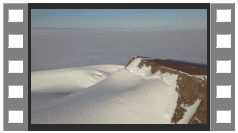
by Ria Olivier | Mar 9, 2022 | Announcement, Antarctica, Current Event, News, Research, SA Agulhas II
Sir Ernest Shackleton’s ship, The Endurance was crushed and sank to the ocean floor, in the Weddell Sea, Antarctica (1915). Read more here.
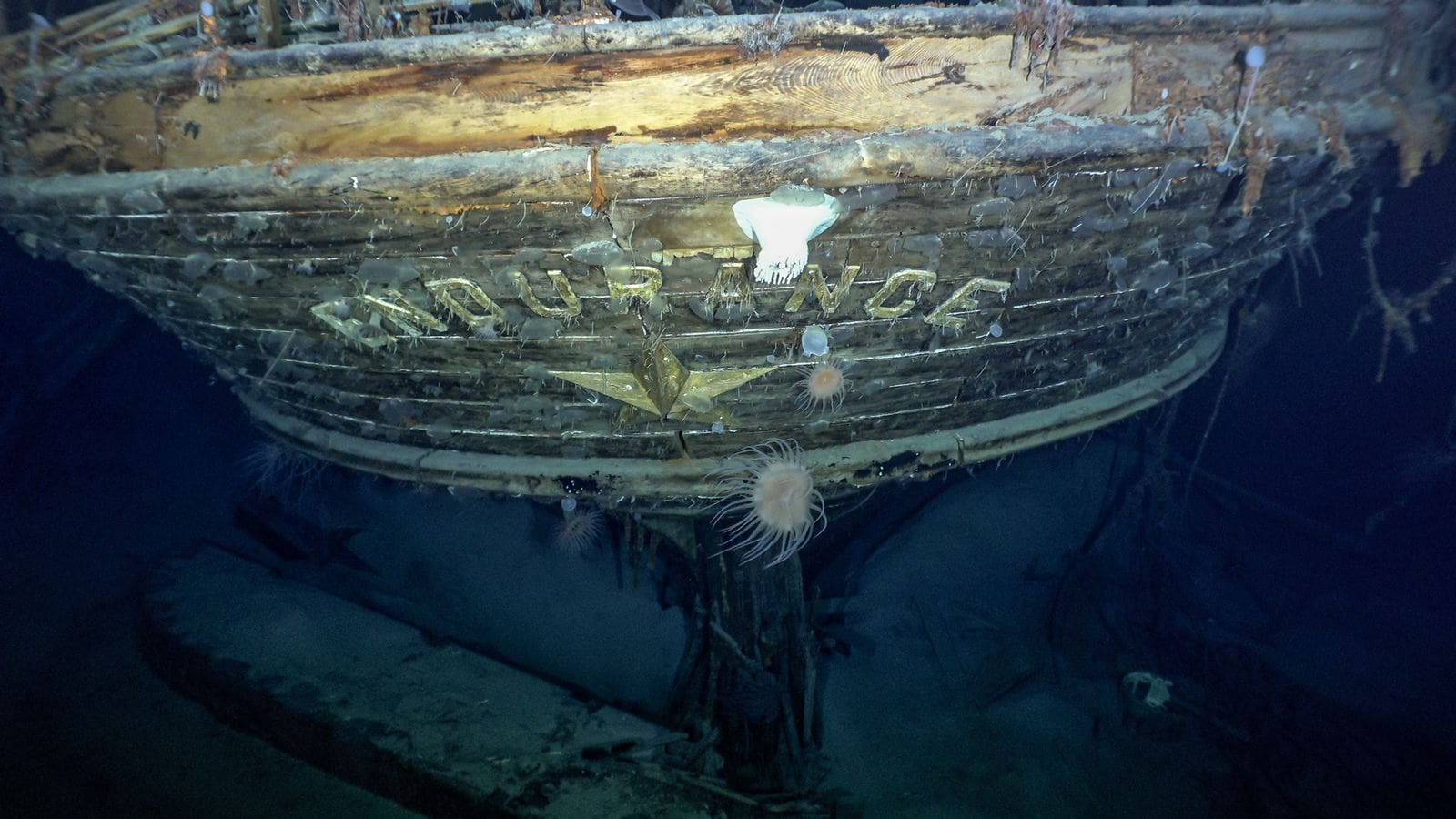
The Endurance was found at a depth of 3008 meters in the Weddell Sea, Antarctica. Image Credit: Falklands Maritime Heritage Trust/National Geographic
The South African (Department of Forestry, Fisheries and the Environment) owned research and supply vessel, the S.A. Agulhas II (managed and operated by African Marine Solutions), is currently in the Weddell Sea, chartered by the Falklands Maritime Heritage Trust to locate the sunken ship of Shackleton. The Endurance 22 Expedition made an official press release earlier today, announcing that The Endurance has been found and successfully surveyed and filmed for research purposes. Read the press release on Endurance 22 here.
Congratulations to all the different research teams on board and to the captain of the vessel, Captain Knowledge Bengu, and his crew that ensured the safety of all passengers.
WATCH the footage here!
After the unsuccessful Weddell Sea Expedition in 2019, these are the proud individuals (including Captain Knowledge Bengu, Ice Pilot Captain Freddie Ligthelm and many S.A. Agulhas II crew members) that were able to join this second and very successful hunt for Shackleton’s Endurance.

L-R: James-John Matthee, John Shears, Annie Bekker, Pierre Le Gall, Mensun Bound, Chad Bonin. Image Credit: Chad Bonin.
Before heading to Cape Town, with only 3 days left of the original charter time, the S.A. Agulhas II is now on her way to South Georgia, the burial place of Sir Ernest Henry Shackleton.


LIVE Interview from the S.A. Agulhas II – Captain Knowledge Bengu
Anche Louw, Antarctic Legacy of South Africa, 09 March 2022

by Ria Olivier | Feb 18, 2022 | Announcement, Antarctica, Current Event, News, SA Agulhas II

This vessel, currently chartered by the Falklands Heritage Trust to locate the sunken ship of Shackleton, is in the Weddell Sea at the coordinates last recorded by Shackleton’s crew before the ship sank. Read more about thie Endurance22 expedition here.
The vessel is in the experienced hands of Captain Knowledge Bengu. Captain Bengu is supported by Captain Michael Mdluli, Ice Pilot Captain Freddie Ligthelm, Chief Officer Reagan Paul, and a crew of 43 South African seafarers. The Chief Engineer on the cruise is Themba Tshongweni, who leads a team of marine engineers and technical support personnel, responsible for optimising the vessel’s performance during the cruise.
Track the ship’s progress in real-time
here.
Captain Knowledge Bengu will be interviewed LIVE today, 18 February 2022 at 18:00 (South African Standard Time).
For more information about the Endurance 22 Expedition – click here to go to the Offical Endurance22 expedition website.
Image of Captain Bengu supplied by AMSOL.
Anche Louw, Antarctic Legacy of South Africa, 17 February 2022

by Ria Olivier | Feb 16, 2022 | Current Event, Meteorology, News, Oceanography, Research, SA Agulhas II, Science
The South African Weather Service (SAWS) has two Marine Scientists (Marc De Vos and Carla Ramjukadh) onboard the S.A. Agulhas II, during the Endurance 22 Expedition. They are responsible for weather forecasts and meteorological data requirements from the various groups onboard the vessel.
“The SA Agulhas II vessel is able to accurately measure atmospheric parameters throughout the Endurance22 expedition. These measurements are supplemented with visual observations (such as weather, clouds, and sea-ice) done manually by the onboard meteorologist, giving a more complete picture of current weather conditions.” (www.endurance 22.org)
Read more about the responsibilities of SAWS onboard this cruise – Click here.
Also, check out the video below – Interview with Marc De Vos and Carla Ramjukadh. These live interviews give an insight into what is currently happening onboard the vessel. Schools all over the world are able to register and take part in live interaction with the various science and other groups onboard. Read more here.
The SAWS team will also contribute to the ARGO research programme, which involves collecting and sharing data from inside the ocean by deploying technologically advanced buoys.
For more information on the role of SAWS (and the various instruments that are used during this cruise) and how schools in South Africa are impacted and involved in scientific cruises, check out the video below: Interview with Dr. Tamaryn Morris, a physical oceanographer and Senior Manager for Marine (South African Weather Service), and Thomas Mtontsi, the Science Engagement Officer at the South African Environmental Observation Network (SAEON).
Anche Louw, Antarctic Legacy of South Africa, 16 February 2022

by Ria Olivier | Mar 23, 2021 | Current Event, Environment, International Days, Meteorology, Overwintering Team, Science

On the 23rd March 2021, we celebrate World Meteorological Day around the globe. This day has great significance and value, as it highlights the critical balance and interaction between mankind and the earth’s atmosphere. The 23rd March also commemorates the establishment of the World Meteorological Organization (WMO) in 1950 and each year a new theme or slogan is released.  This year the theme for 2021 is “The ocean, our climate and weather.” This theme highlights the interconnected relationship between the atmosphere, ocean and climate. The ocean covers approximately 70% of the globe and thus plays a vital role in the climate change and supports life on earth. Therefore it is essential that continuous research is conducted to monitor the relationship between the ocean and atmosphere and subsequent changes experienced. This year’s theme celebrates the WMO’s focus on connecting the ocean, climate and weather within the Earth System.
This year the theme for 2021 is “The ocean, our climate and weather.” This theme highlights the interconnected relationship between the atmosphere, ocean and climate. The ocean covers approximately 70% of the globe and thus plays a vital role in the climate change and supports life on earth. Therefore it is essential that continuous research is conducted to monitor the relationship between the ocean and atmosphere and subsequent changes experienced. This year’s theme celebrates the WMO’s focus on connecting the ocean, climate and weather within the Earth System.
 The South African Antarctic Programme (SANAP) and South African Weather Services (SAWS) plays an integral role in monitoring the southern climate. Overwintering meteorologists, assistants and technicians are stationed at all three South African research bases namely, Marion Island, Gough Island and SANAE Base. These teams are tasked with the following duties which are performed throughout the year:
The South African Antarctic Programme (SANAP) and South African Weather Services (SAWS) plays an integral role in monitoring the southern climate. Overwintering meteorologists, assistants and technicians are stationed at all three South African research bases namely, Marion Island, Gough Island and SANAE Base. These teams are tasked with the following duties which are performed throughout the year:
- Execute and co-ordinate surface meteorological and atmospheric research projects as sanctioned by the Marine Section of SAWS.
- Co-ordinate shift management of the meteorological team.
- Perform daily meteorological observations and release of weather balloons.
- Maintenance and appropriate calibration/validation of all observational equipment.
- Conduct quality control of data, report writing and asset control.
The current overwintering meteorologists in the field are:
Marion Island Base:



(l-r) Nkoane Mathabata (Senir Meteorologist) – Siya Ngcobo and Collen Maphaha (assitant meteorologists)
Gough Island Base:


 (l-r) Zinhle Shongwe (Senior Meteorologist), Dylan Seaton (Assistant Meteoroglist) and Asavela Somaxaka (Meteorological Technician).
(l-r) Zinhle Shongwe (Senior Meteorologist), Dylan Seaton (Assistant Meteoroglist) and Asavela Somaxaka (Meteorological Technician).
Antarctic Base (SANAE):
 Gerard (Boy) Oppel (Senior Meteorologist)
Gerard (Boy) Oppel (Senior Meteorologist)
 It is also important to note that weather observations are collected by SAWS ship based personnel during expeditions aboard the SA Agulhas II. The real-time data collected is used for a myriad of operations on board and aids in decision making for safe ship operations and passage. This data is also archived by SAWS and used in weather models which improves forecasting abilities and provides insight to the dynamic relationship between atmosphere and ocean.
It is also important to note that weather observations are collected by SAWS ship based personnel during expeditions aboard the SA Agulhas II. The real-time data collected is used for a myriad of operations on board and aids in decision making for safe ship operations and passage. This data is also archived by SAWS and used in weather models which improves forecasting abilities and provides insight to the dynamic relationship between atmosphere and ocean.
Fun Fact:

Panoramic photo of Vostok Station. (https://en.wikipedia.org/wiki/Vostok_Station)
At a Russian Base named Vostok Station, the coldest air temperature in history was recorded in July 1983. The air temperature recorded was – 89ºC.
 See webinar to attend on World Meteorology Day 2021
See webinar to attend on World Meteorology Day 2021
Cover Image: South Thule Island, photographed by Tahlia Henry

by Ria Olivier | Mar 8, 2021 | Announcement, Current Event, International Days, SANAP
 Today on International Women’s Day we are celebrating all those women involved within the South African National Antarctic Programme (SANAP). International Women’s Day is celebrated on 8 March of each year. 2021 Theme: “IWD 2021 campaign theme: #ChooseToChallenge; A challenged world is an alert world. Individually, we are all responsible for our own thoughts and actions – all day, every day. We can all choose to seek out and celebrate women’s achievements. Collectively we can help create an inclusive world. From challenge comes change, so let’s all choose to challenge.”
Today on International Women’s Day we are celebrating all those women involved within the South African National Antarctic Programme (SANAP). International Women’s Day is celebrated on 8 March of each year. 2021 Theme: “IWD 2021 campaign theme: #ChooseToChallenge; A challenged world is an alert world. Individually, we are all responsible for our own thoughts and actions – all day, every day. We can all choose to seek out and celebrate women’s achievements. Collectively we can help create an inclusive world. From challenge comes change, so let’s all choose to challenge.”



 Within SANAP, women take on many roles. Throughout SANAP we find women in leadership positions which we celebrate; the Minister of Environment, Forestry and Fisheries, Minister Babara Creecy, the Director at Knowledge Advancement and Support (KAS) of the National Research Foundation Tracy Klarenbeek, Deputy Directors Kusi Ngxabani and Chuma Phamoli. (Above l-r: Min Creecy, Tracy Klarenbeek, ChumaPhamoli, Kusi Ngxabani)
Within SANAP, women take on many roles. Throughout SANAP we find women in leadership positions which we celebrate; the Minister of Environment, Forestry and Fisheries, Minister Babara Creecy, the Director at Knowledge Advancement and Support (KAS) of the National Research Foundation Tracy Klarenbeek, Deputy Directors Kusi Ngxabani and Chuma Phamoli. (Above l-r: Min Creecy, Tracy Klarenbeek, ChumaPhamoli, Kusi Ngxabani)

 In the science environment there are many Principal Investigators and the chair for the National Committee of SCAR, Bettine van Vuuren(left). The Champion for the Antarctic Youth Coalition for Antarctic Gateway Cities is Rudzani Silima(right). There have been several students and other women over the past years within SANAP. See slideshow on ALSA Archive and Womens day 2020 on www.sanap.ac.za
In the science environment there are many Principal Investigators and the chair for the National Committee of SCAR, Bettine van Vuuren(left). The Champion for the Antarctic Youth Coalition for Antarctic Gateway Cities is Rudzani Silima(right). There have been several students and other women over the past years within SANAP. See slideshow on ALSA Archive and Womens day 2020 on www.sanap.ac.za
Cover Image : Tahlia Henry

by Ria Olivier | Dec 1, 2020 | Antarctica, Current Event, International Days, Uncategorised
International Antarctic Day is celebrated on the 1st December. On this day in 1959 the Antarctic Treaty was signed and South Africa was one of the original 12 treaty countries. Since 1959 South Africa has been part of this treaty and we have a presence on the continent with our overwintering teams at our station. 10% of our planet is set aside to “forever to be used exclusively for peaceful purposes in the interest of mankind”.
In celebration we share this incredible footage taken by Eduan Teich of Ultimate Heli during the 2019/2020 takeover at SANAE IV. This silent footage will enhance the feeling of setting foot on this remote continent.
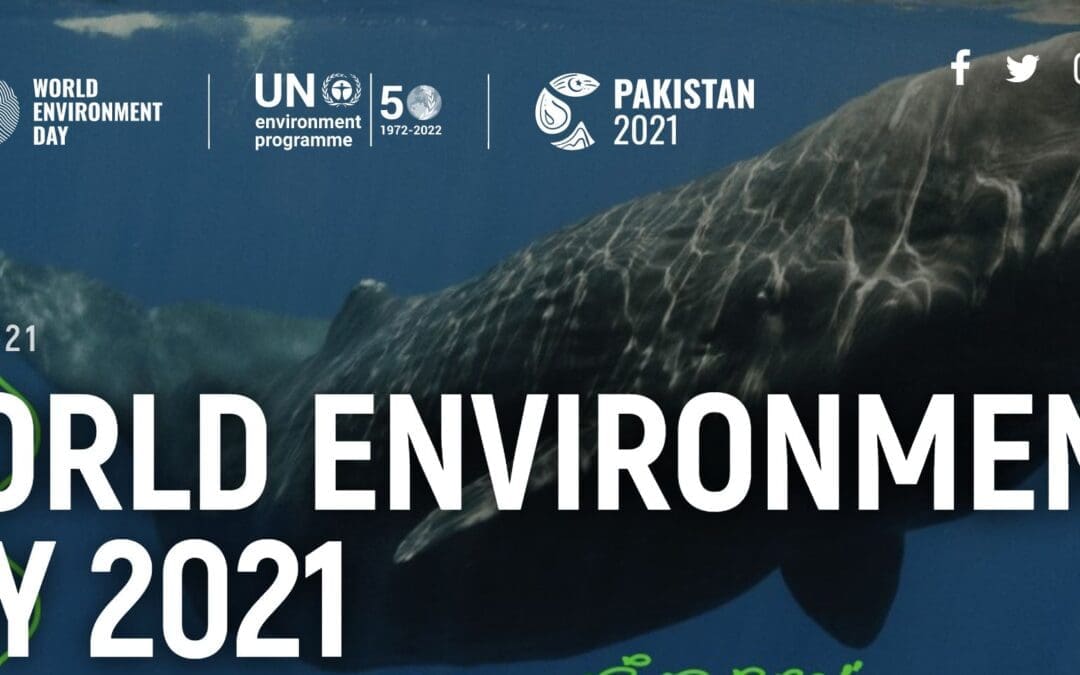

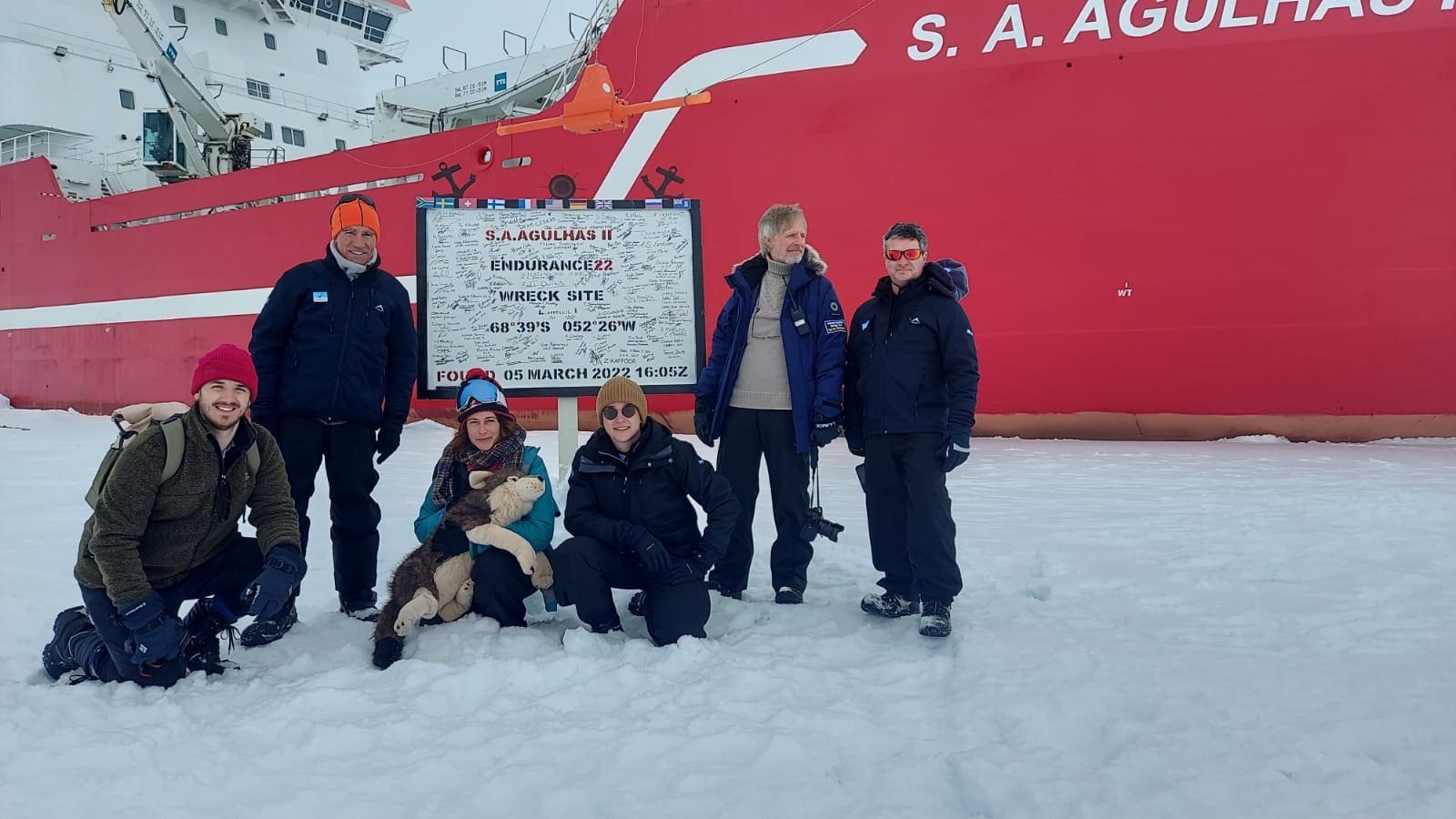



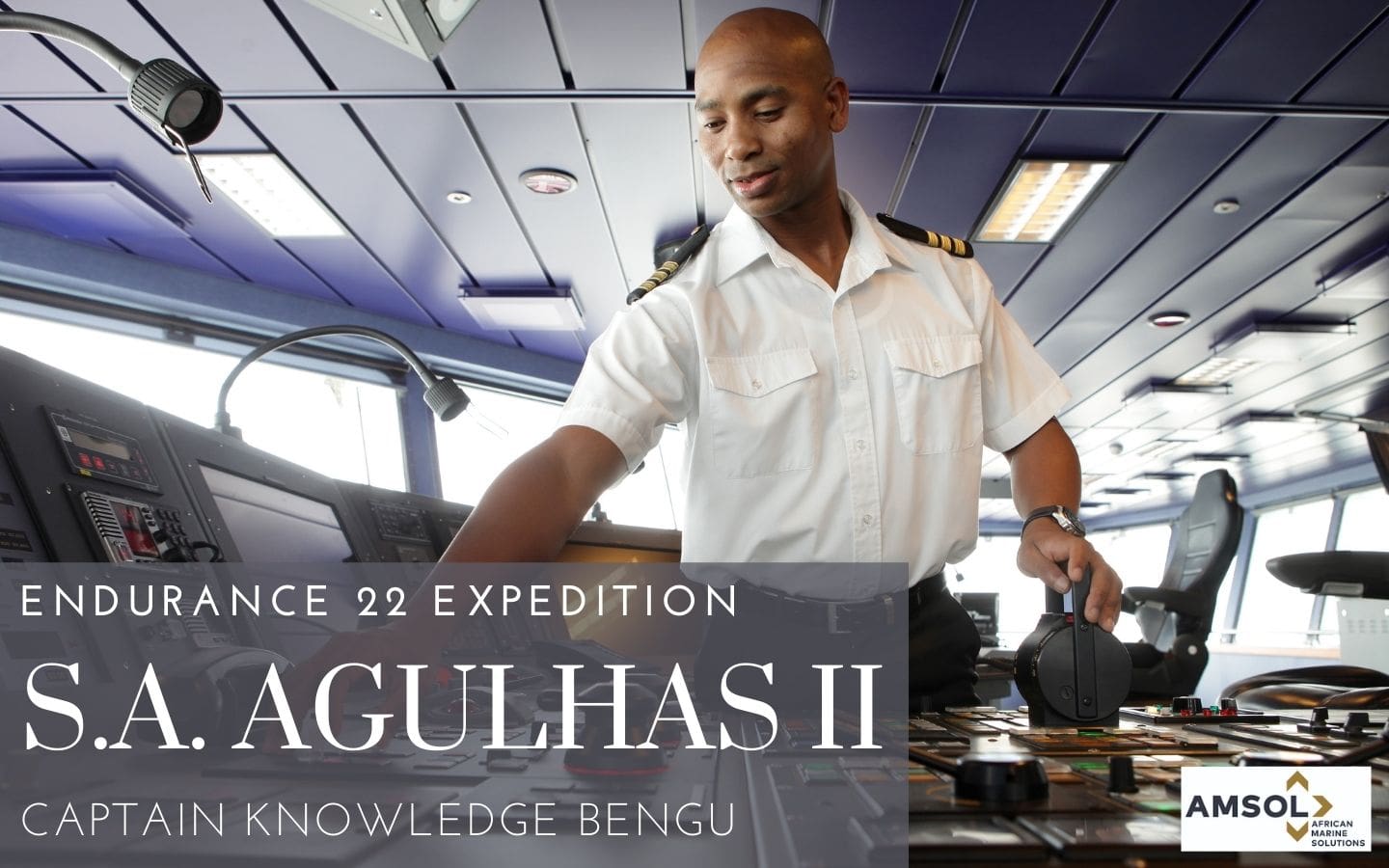
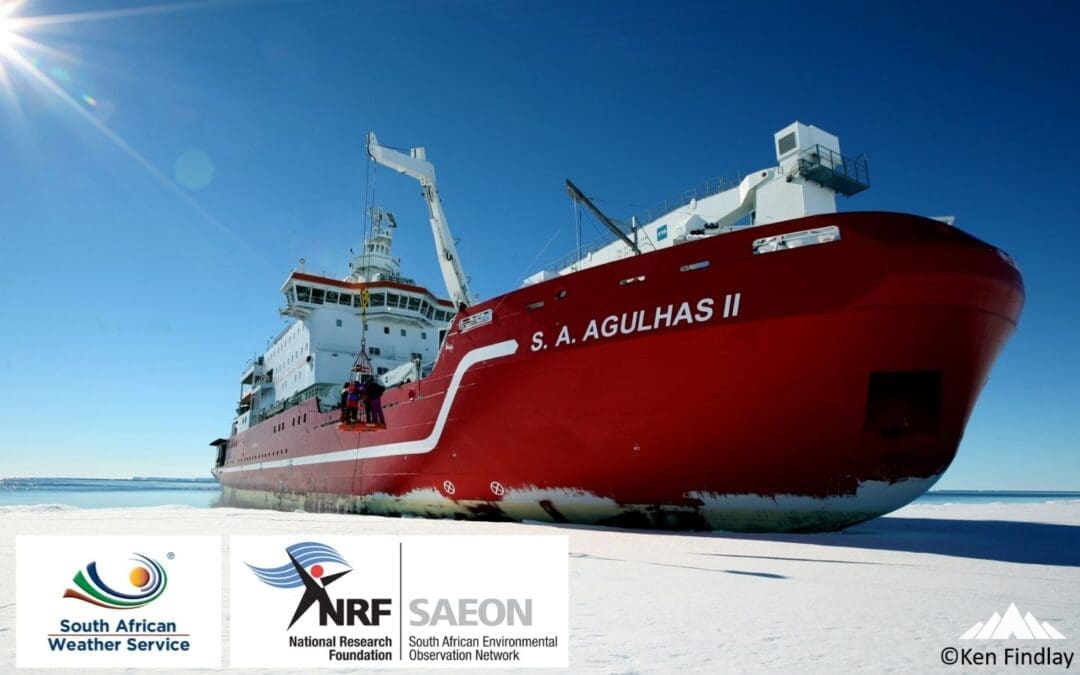
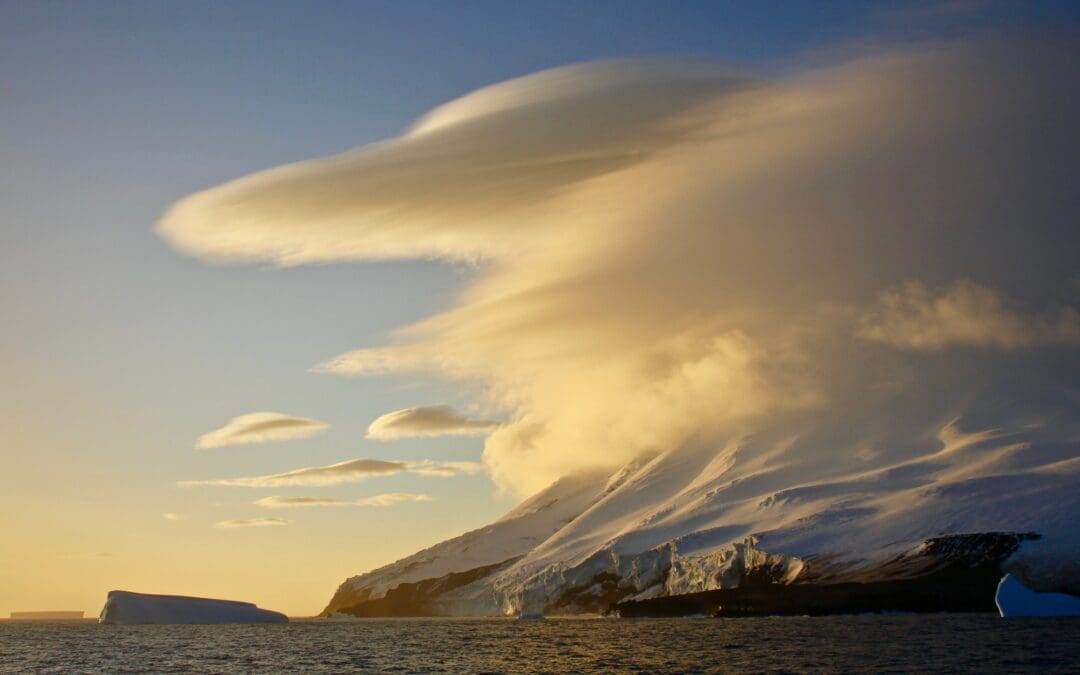
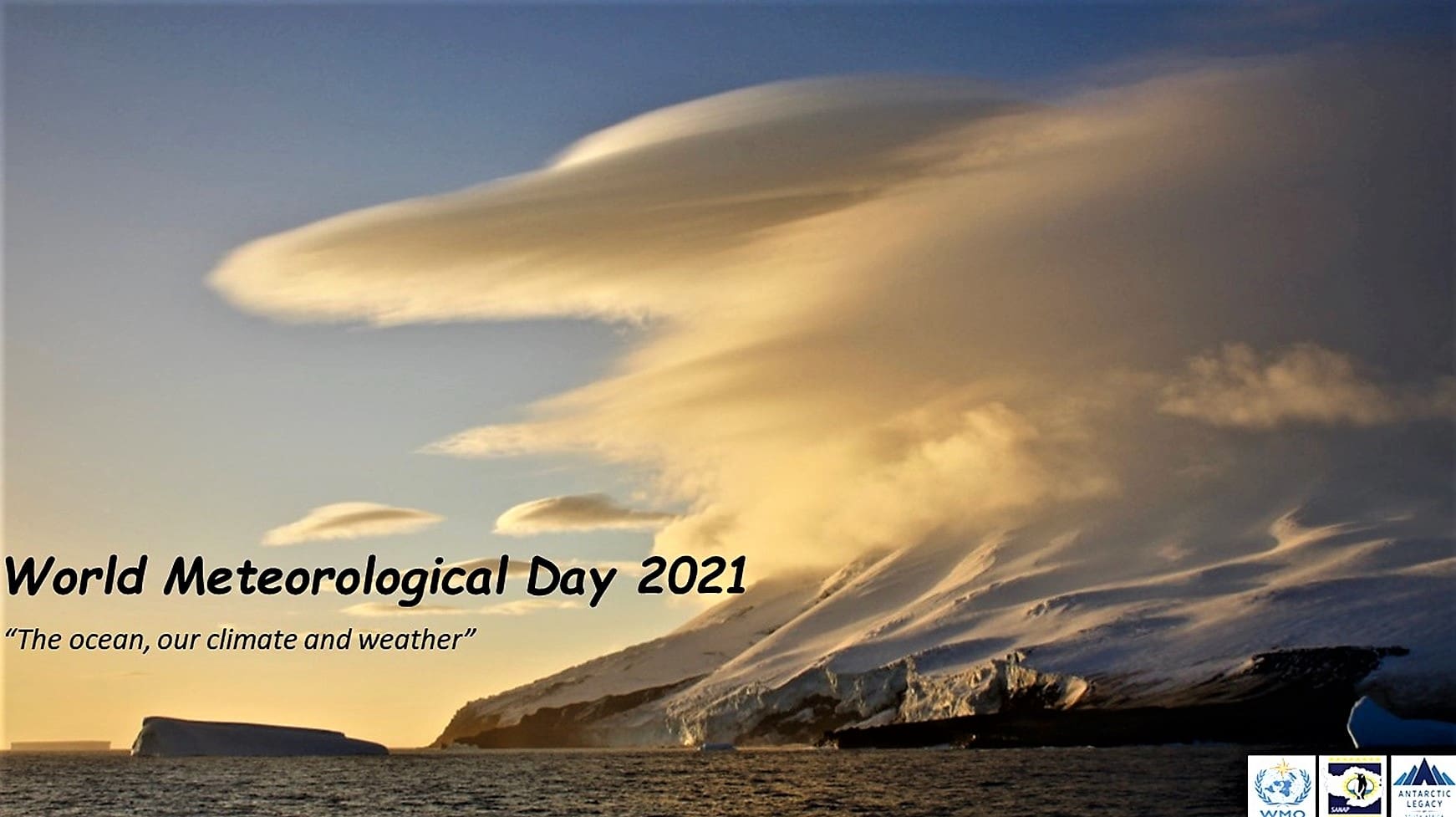
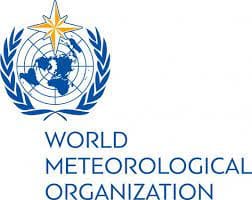 This year the theme for
This year the theme for 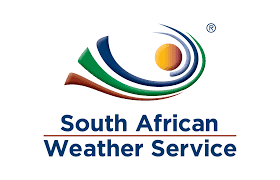 The South African Antarctic Programme (SANAP) and
The South African Antarctic Programme (SANAP) and 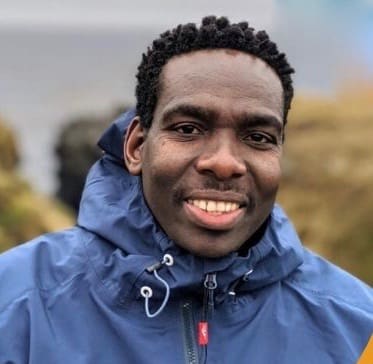




 (l-r) Zinhle Shongwe (Senior Meteorologist), Dylan Seaton (Assistant Meteoroglist) and Asavela Somaxaka (Meteorological Technician).
(l-r) Zinhle Shongwe (Senior Meteorologist), Dylan Seaton (Assistant Meteoroglist) and Asavela Somaxaka (Meteorological Technician). Gerard (Boy) Oppel (Senior Meteorologist)
Gerard (Boy) Oppel (Senior Meteorologist)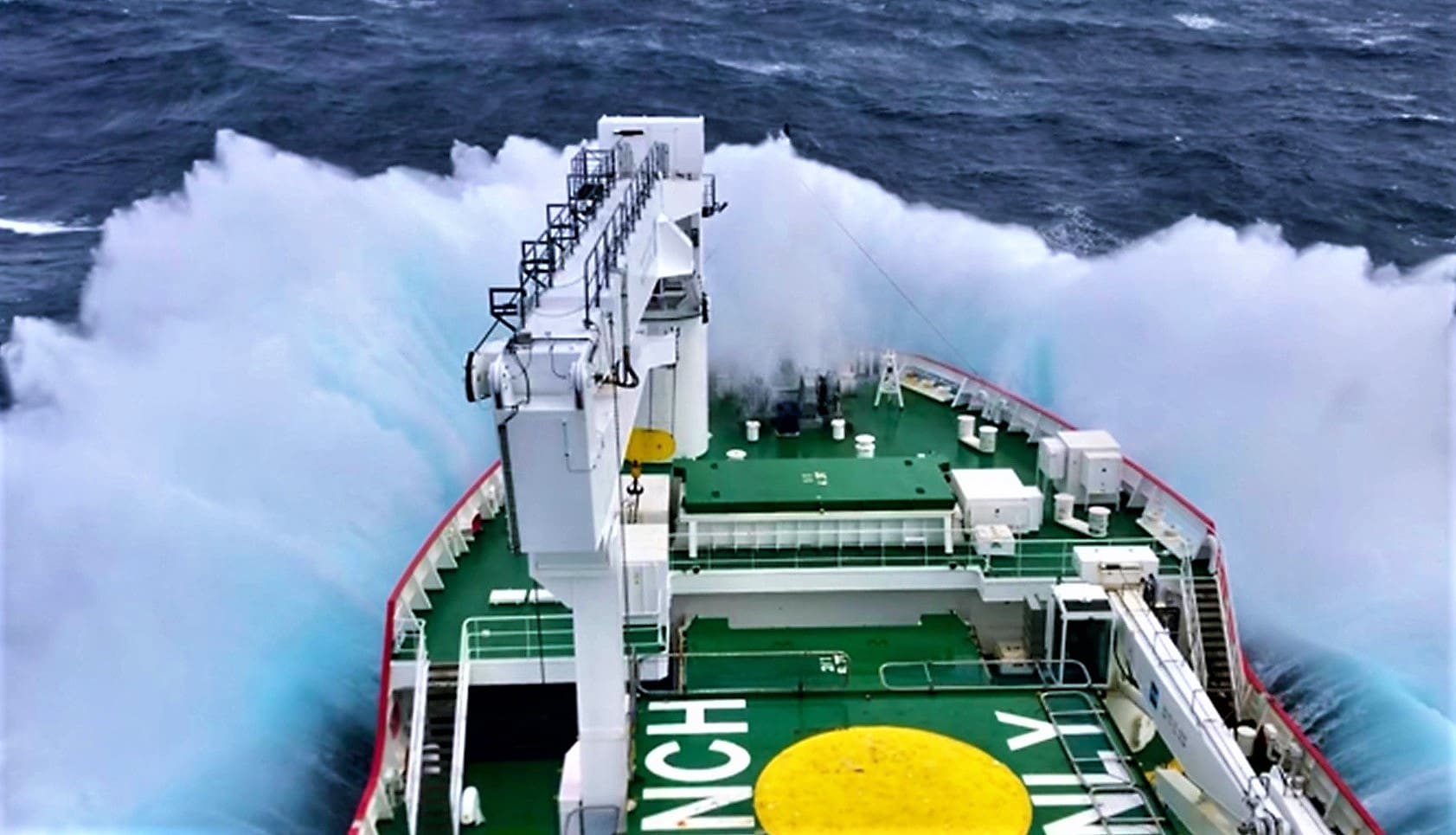 It is also important to note that
It is also important to note that 
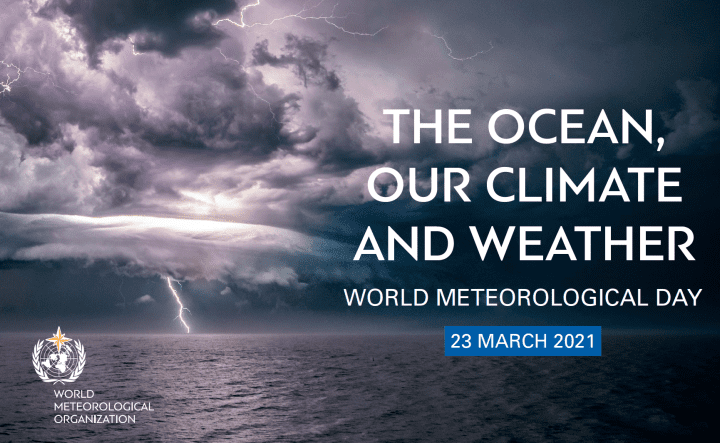 See
See 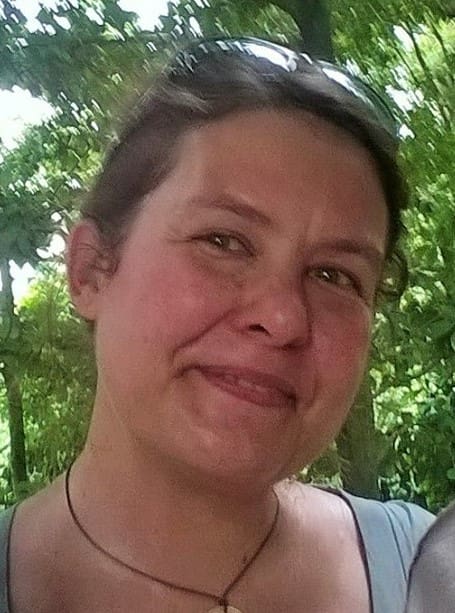
 Today on International Women’s Day we are celebrating all those women involved within the South African National Antarctic Programme (SANAP).
Today on International Women’s Day we are celebrating all those women involved within the South African National Antarctic Programme (SANAP). 

 Within SANAP, women take on many roles. Throughout SANAP we find women in leadership positions which we celebrate; the Minister of Environment, Forestry and Fisheries, Minister Babara Creecy, the Director at Knowledge Advancement and Support (KAS) of the National Research Foundation Tracy Klarenbeek, Deputy Directors
Within SANAP, women take on many roles. Throughout SANAP we find women in leadership positions which we celebrate; the Minister of Environment, Forestry and Fisheries, Minister Babara Creecy, the Director at Knowledge Advancement and Support (KAS) of the National Research Foundation Tracy Klarenbeek, Deputy Directors 
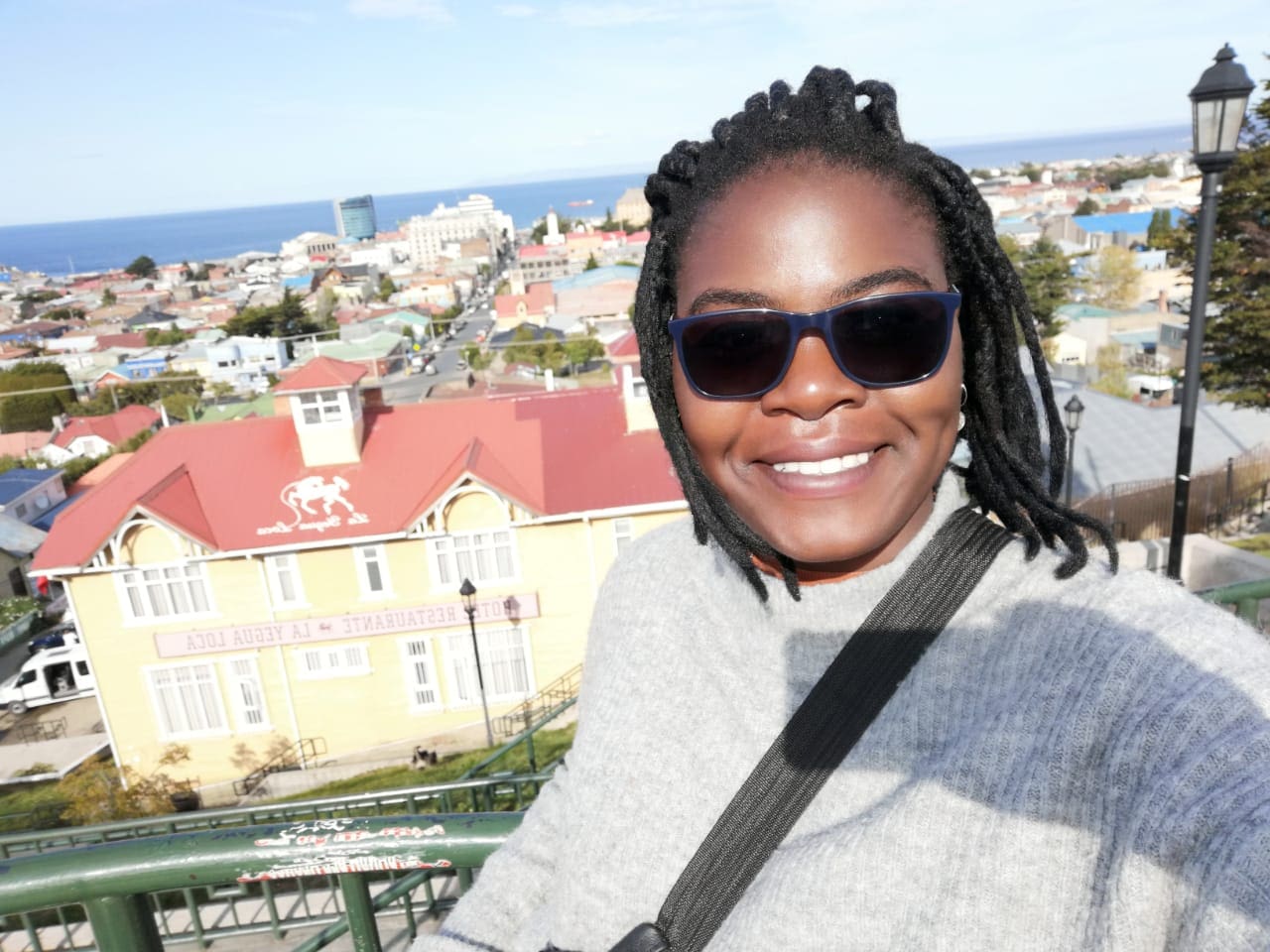 In the science environment there are many Principal Investigators and the chair for the
In the science environment there are many Principal Investigators and the chair for the 